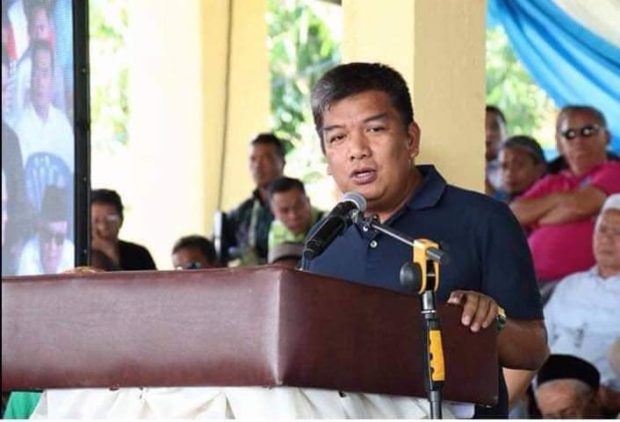
Former ARMM Gov. and now Basilan Rep. Mujiv Hataman. Photo from Hataman’s office
MANILA, Philippines — Basilan Rep. Mujiv Hataman has filed a bill aiming to integrate Arabic language and Islamic values into the country’s school curriculum — especially outside Bangsamoro — noting the huge population of Muslims, and the need to diversify education.
“Kung malaking bahagi ng ating populasyon ay mga Pilipinong Muslim, mayroon tayong diversity of learning needs sa ating mga paaralan na kailangang tugunan,” said Hataman in a statement.
(If a large part of our population is Filipino Muslims, we have a diversity of learning needs in our schools that need to be addressed.)
“Layon ng panukalang ito na maging mas inclusive para sa mag-aaral na Muslim ang ating basic education system,” he added.
(The purpose of this measure is to make our basic education system more inclusive for Muslim students.)
In House Bill No. 7130, or the Arabic Language and Islamic Values Education (ALIVE) Act, Hataman proposed to institutionalize the Department of Education (DepEd)’s current program of the same name in all public and private basic education schools outside Bangsamoro Autonomous Region in Muslim Mindanao (BARMM).
According to Hataman, the ALIVE bill is one way to address the country’s diverse cultural and religious background, and would also help enlighten Filipinos about the Muslim culture and tradition.
He added that although Filipino Muslims are part of the Philippine education system, “many do not have access to education according to their cultural, traditional, social and religious beliefs, especially for those outside of [BARMM].”
“And as a part of the Filipino population whose numbers range anywhere from over 6 million to as high as 12 million, depending on the source of data, it is imperative that we incorporate Islamic education in all private and public schools, especially in cities and municipalities that have no accessible madrasahs for Muslim students,” Hataman said in his bill.
But under House Bill No. 7130, the teaching of Arabic language and Islamic values education to both Muslim and non-Muslim students shall be optional or at the behest of the parents, whose approval is required in writing.
Moreover, Hataman’s proposal seeks to establish the Office on Madrasah Education (OME) within DepEd to be headed by the Undersecretary for Madaris, to coordinate with the relevant stakeholders for the proper implementation of the Madaris programs.
The lawmaker expressed his belief that his bill will help enrich the Philippine education system with the “cultural and religious knowledge of the Islamic faith and foster national unity in diversity among Muslim and non-Muslim students.”
Hataman likewise said that his proposed measure will aid in addressing the existing challenges including the gap in competencies of basic education graduates of madrasahs who do not have the skills for immediate employment.
RELATED STORIES
Lawmaker seeks dedicated cemeteries for Muslims
Hataman bill seeks Muslim prayer rooms in government, private buildings